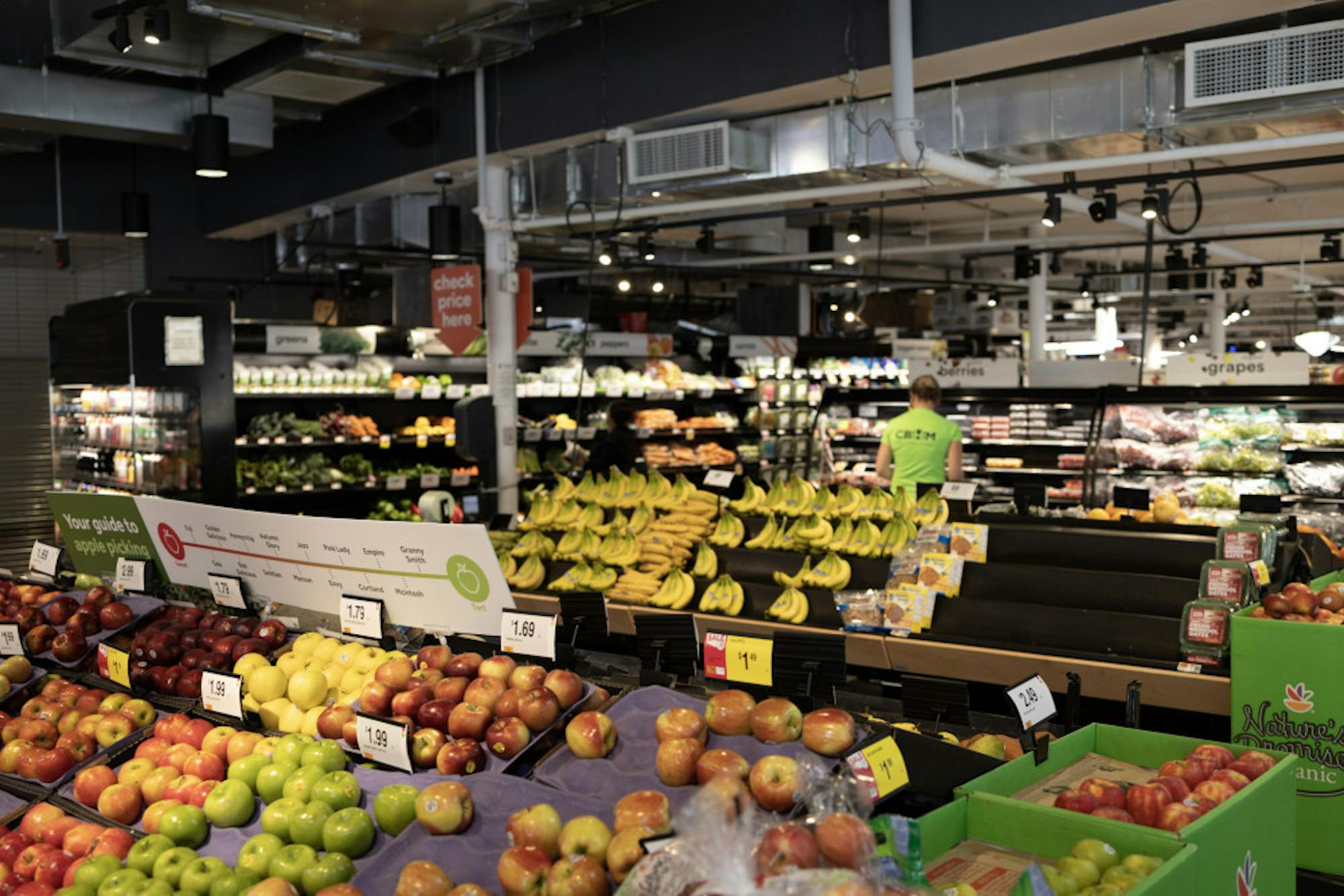The Association of Mixed People at Tufts and Tufts Eco Reps co-hosted an event called “Discussion on Cultural Origins & Fusion of Food” on Nov. 7. This discussion focused on how food is intrinsically linked to cultural identity, colonialism and sustainability.
Sierra Moll, who is a member of both Eco Reps and AMPT, explained the inspiration behind the AMPT and Eco Rep collaboration.
“I’m in the sustainable food area [of Eco Reps] this semester, and coincidentally, 2 other Eco Reps who are also involved in AMPT are also in this area,” Moll wrote in an email to the Daily. “Because of this, we thought it would be a perfect opportunity to apply sustainable food concepts in a collab with AMPT.”
The presentation was hosted by Maia Ramírez Corten, an area leader of Eco Reps and member of AMPT, and Abigail Bala, who is an Eco Rep as well as the treasurer of AMPT.
After a short introduction, Bala spoke about how the spread of agriculture through migration, trade and conflicts affects food options around the world. Bala also emphasized how the discussion of colonialism cannot be separated from discussion of food identity.
“Colonialism is another controversial force that has shaped food and food consumption and it intersects with issues of justice … including food justice,” Bala said. “[Colonialism is] important … for the intersection of food justice and for the purposes of understanding the exploitation of people and natural resources, and how colonialism has imposed other cultures and language and customs onto people.”
Ramírez Corten then spoke about how fusion foods can arise from two previously separate cultures brought together to combine their influences through food. She referenced mofongo, a dish made of plantains and served with various meats and vegetables, as an example of a fusion food.
“[Mofongo] is a very common food in Dominican Republic, Puerto Rico and Cuba, where a lot of the populations of those areas today are mixed,” Ramírez Corten said. “And the origins of this dish come from enslaved people of Angola and other regions of Africa … the mashing and pounding techniques used for mofongo are influenced by indigenous peoples of those areas.”
The presentation then shifted to focus on how colonization and capitalism have influenced food-related environmental degradation. Bala and Ramírez Corten described how restricting access to food sources has been used as a weapon to subjugate people.
“One kind of root way that humans were able to colonize others is by attacking food access and limiting how people were able to express their culture and identity,” Ramírez Corten said. “An example of this is the historic killing of bison on the plains to starve native people.”
In addition, the clubs discussed how colonization also caused shifts in diet as traditional dietary options were replaced by foods introduced by colonizers. In America, this resulted in negative environmental effects as meat became a more significant component of meals.
“Clearing of New England or other forests for pastureland [for domesticated animals] and cropland [occurred] … as domesticated animals [became] the primary meat source,” Bala said. “This connects to colonization because colonizers from Europe brought over domesticated cows, which is the largest cause of methane pollution and takes up a lot of physical space as well in terms of deforestation.”
The event concluded with small group discussions about attendees’ personal experiences with their mixed identity and food. The conversations were informed by questions including “Do people identify with food belonging to one of their mixed identities more than their other(s) and why do they think this is so?” and “How has your mixedness shaped your experience with cultural foods?”
These questions prompted discussion on how companies brand fusion foods in a way that appeals to white consumers, rather than being true to the traditional foods. Margot Durfee, the event coordinator for AMPT, spoke about how this marketing can further reinforce harmful stereotypes.
“[Through marketing] you can also see the “white-ification” of ethnic foods,” Durfee said. “In a way, it's kind of taking these cultures and traditions, but packaging in a way that [is] appealing to white consumers in a way that perpetuates stereotypes.”
Discussion groups also spoke about how food is important to mixed identity as it allows people to connect with their cultures. Durfee spoke about their group’s discussion of how cooking dishes that represent their culture has played an important role in keeping generations of family connected.
“We were talking about how food and recipes are not only just a way to stay connected to your culture in the moment, but it’s also very much tied to generational connections.” Durfee said. “The role of … your grandma cooking a lot of dishes and representing a certain culture, especially for mixed families, [creates] the legacy of handing down the recipe book and continuing that tradition of making that whole family connection.”






